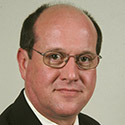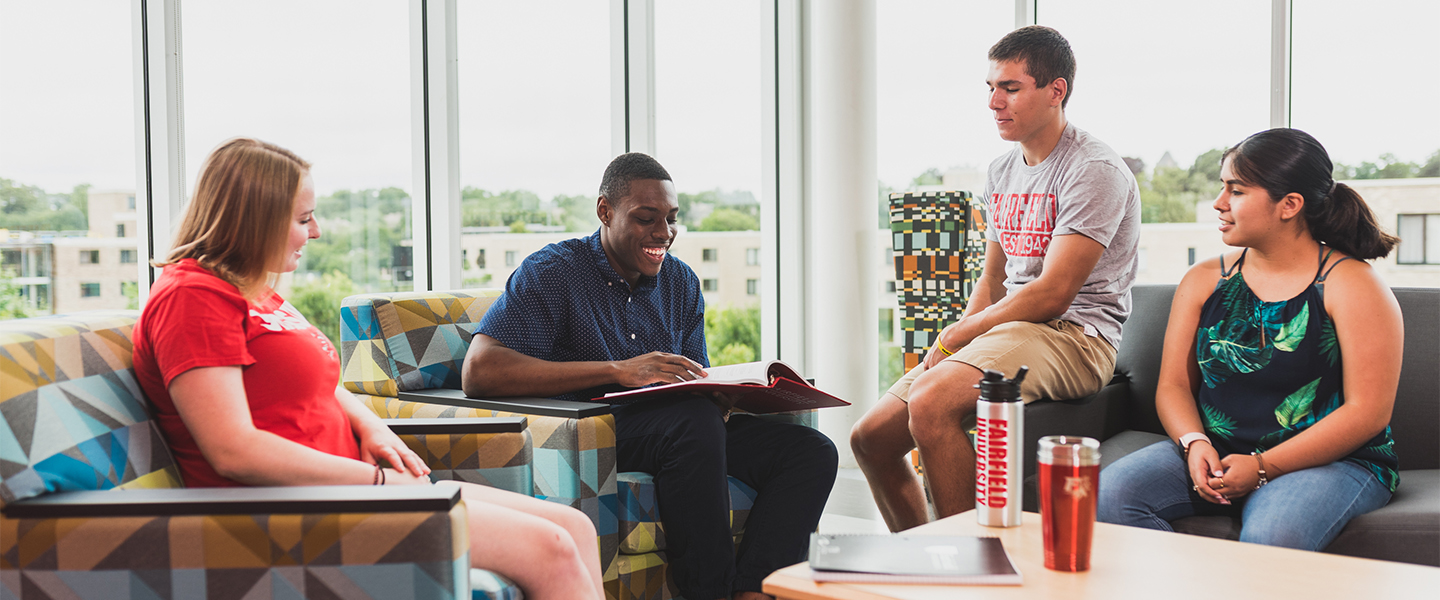Becoming Informed
Becoming aware of human suffering (or environmental destruction) anywhere in the world. Make suffering visible rather than invisible.
Fairfield University's Program in Applied Ethics offers you an opportunity to learn the history, terminology, and forms of reasoning that underlie the practice of ethical conduct. Our unified approach to the theory and practice of ethical conduct is designed to raise your level of awareness of the moral dilemmas of your chosen field of practice, of allied fields, and of the society as a whole.
Applied Ethics offers a series of core-level and elective courses and seminars, and a 15-credit minor. The program includes an integrated set of interdisciplinary courses, seminars, lectures, colloquia, and workshops. Courses are offered primarily in business, health care, communications, and environmental ethics. Depending on your interest, any profession or institution may become the focus of a course or seminar.
With wide connections in the business and professional community, the faculty are able to bring businesspeople, doctors, lawyers, and other professionals into classroom discussions. Fairfield's favorable location in an area of many corporate headquarters and medical and media centers - and the excellent cooperation that these centers extend to the University - greatly enhance the vitality of the program.

P: (203) 254-4100
F: (203) 254-4199
admis@fairfield.edu
1
Becoming Informed
Becoming aware of human suffering (or environmental destruction) anywhere in the world. Make suffering visible rather than invisible.
2
Empathy & Compassion
Part of the Christian commitment in this world is compassion, suffering on account of the suffering of another.
3
Taking Action
Be prepared to do something besides wringing your hands. If people are hungry, feed them. If the water table is sinking, plant trees. That sort of thing.
4
Human Responsibility
Not all misery is caused by human beings, but a lot of it is. Who? And How? With particular determination, seek out the operations, acts, and motives, especially in the developed world, that inflict suffering, especially on the developing world.
Required Courses
| Two to three (2 – 3) Intermediate Applied Ethics courses |
| Two to three (2 – 3) Advanced Applied Ethics seminars |
A detailed list of course requirements, offerings, and more can be viewed in the University’s course catalog.

Charles F. Dolan School of Business & College of Arts and Sciences
Any worthwhile employer wants the assurance that the people he or she hires have the ability to do the job and the commitment to do it properly, in accord with good moral standards.
The applied ethics listing on your résumé tells the employer that you have considered, in a reasoned manner, the ethical dilemmas that can arise in your professional life and that you are prepared to deal with them.
Learn about how Fairfield's Career Center can support your post-graduate goals, and how Fairfield's tight-knit alumni network can build career and mentoring opportunities that last a lifetime.
As you progress through your college years, you will be acquiring the knowledge and skills that prepare you for a postgraduate career even as you ponder the ethical issues that have arisen in society and the professions throughout history. The Applied Ethics Program sharpens your sensitivity toward such issues as they will occur in your future occupation and in your life as a citizen. You will be working with faculty members who have researched, developed, and published case studies of ethical dilemmas in business, health care, politics, and communications. Corporate officers from businesses in the region and professionals from other institutions regularly participate in applied ethics seminars. Some have arranged to bring students as observers or interns to ethics committees and research review board meetings where they work.

As a Jesuit, Catholic university, Fairfield is dedicated to diversity and inclusion; to radical hospitality in service of racial, social, and economic justice.
The College of Arts and Sciences at Fairfield University is home to a vibrant community of engaged faculty, dedicated staff and budding scholars devoted to the process of invention and discovery and excited by the prospect of producing knowledge in the service of others. Meet the dedicated members of our Applied Ethics program.